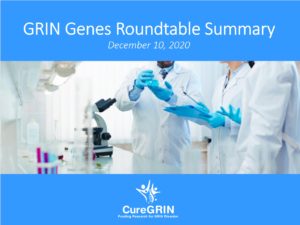CureGRIN’s Letter to the CDC Regarding ICD-10 Codes for GRI Disorders
Share This Post
May 5, 2023
Ms. Donna Pickett
Co-Chair, ICD-10-CM Coordination and Maintenance Committee
National Center for Health Statistics
ICD-10-CM Coordination and Maintenance Committee
3311 Toledo Road
Hyattsville, Maryland 20782
RE: ICD-10 Code for GRI Disorders and other rare neurodevelopmental disorders and DEEs
Dear Ms. Pickett:
I am writing to you as the CEO of CureGRIN Foundation – on behalf of thousands of patients and their families – to urge you to add ICD-10 codes for the the following genes: GRIA1, GRIA2, GRIA3, GRIA4, GRIK2, GRIN1, GRIN2A, GRIN2B and GRIN2D.
Adding these nine codes for GRI Disorders will save lives.
It will do so both by improving patient care and accelerating the path to treatments and cures.
You already heard from Dr. Tim Benke that the 9 genes represent unique well-defined syndromes, that the incidence of each of these disorders ranges from 20 per million to 60 per million, and that adding codes would help many physicians tailor care and avoid never events. (In many hospitals entering a ICD-10 code for one of the GRIN Disorders could trigger a warning not to give Ketamine, for example).
But if the CDC remains unconvinced about the need to add these nine codes, I urge you to consider the following five points:
Codes save lives
We know of 20 members of our community who have passed away from GRI Disorders and related complications over the last four years. We expect there are hundreds more who have died before finding our community. Adding ICD-10 codes for GRI Disorder will help us to better understand GRI-related mortality. The codes will also prevent deaths by improving care and accelerating the path to treatments and cures.
Codes help cures
Since our founding in 2019, CureGRIN has been working tirelessly alongside researchers, clinicians and industry to accelerate the path to treatments and cures. There are many promising compounds and genetic treatments, but there are barriers in getting those to clinical trial. Adding ICD-10 codes for these nine genes would remove a significant barrier to clinical trials, by helping us to better understand where our patients are located.
Clinicians want codes
Some of the physicians advising the CDC have pushed back on the notion of adding genetic codes for rare neurological diseases. But every physician I have spoken to who works with GRI patients is very much in favor of adding codes for the 9 GRI genes. (Some have written letters to express their views). I have heard from many families that their clinicians cannot understand why representatives of the societies that represent them (AAN & AAP) would stand in the way of improving patient care by adding codes.
We know our diseases
One speaker at the March C&M meeting expressed the notion that parents wouldn’t know which gene is affected. Nothing is further from the truth. I’ve talked to hundreds of parents of children with GRI Disorder and other rare diseases and they know which gene has a pathogenic variant as well as they know their child’s name. As soon as these codes are confirmed, CureGRIN will launch a major campaign to educate our families so they know to mention the new codes to their clinicians at every visit.
Don’t forget the patient voice
While there are clinicians and coders who formally advise the CDC on ICD-10 codes, the patient voice is sidelined in the process. We are grateful that we were able to talk to Dr. David Berglund ahead of our presentation, but is unfortunate that patients (or their parents / caregivers) are excluded from the formal advisory and decision-making process. In their comments at the March meetings, doctors were advocating on what’s best for doctors, but it wasn’t clear who was advocating on what’s best for patients. I urge the committee to make sure the patient voice is top-of-mind during deliberations on GRI disorders and to consider adding patient representatives to the formal process at the next C&M meetings.
Thank you very much for your consideration and I look forward to hearing positive news from you soon.
Sincerely,
Keith McArthur
Chief Executive Officer
CureGRIN Foundation
Keith@curegrin.org
Read more Posts

How 2023 brought us closer to treatments and cures
Since our founding in 2019, CureGRIN has been working tirelessly alongside researchers, clinicians and industry to accelerate the path to treatments and cures. There are many promising compounds and genetic treatments, but there are barriers in getting those to clinical trial. Adding ICD-10 codes for these nine genes would remove a significant barrier to clinical trials, by helping us to better understand where our patients are located.

GRIN Genes Roundtable – Dec 2020
Every two months, we’ll be sharing updates on the latest publications about GRIN genes, NMDA receptors and other glutamate receptors.
